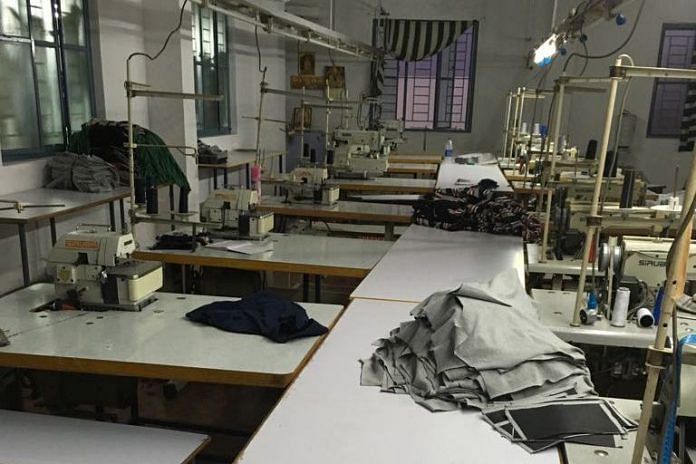Industrialists feel GST will prove to be a boon in the long run, but for now, despondency reigns supreme among the working class.
Tirupur: The textile hub of Tirupur in Tamil Nadu is home to close to 8,000-9,000 factories, mostly classified as small- and medium-scale industries, churning out an annual turnover of Rs 40,000 crore per annum in the domestic and export markets. Almost eight lakh workers are dependent on the industry for their livelihood.
The central government’s demonetisation of currency notes and the introduction of the Goods and Services Tax regime have had a deep impact on the industry, and workers are frustrated. However, in contrast to counterparts in many other parts of the country, industrialists in Tirupur have welcomed GST with open arms.
G.R. Senthilvel, secretary of the Tirupur Exporters and Manufacturers Association, admitted that demonetisation left industrialists with difficulties in paying wages to their labourers, but he added: “GST is a system to be welcomed; it can reduce our burden on business. The difficulty is in adapting to the sudden procedural changes we have to carry out.
Some manufacturers point out that business is still being conducted without bills, and officers assigned the task of checking on the proper implementation of GST haven’t been doing their jobs effectively. Curbing this practice, they say, would benefit all concerned in the long run.
Most of the accounting in these factories is done manually, thus, an extra employee has had to be hired at each factory to deal with the introduction of GST. Insiders say things would be easier if the government would help the public prepare for it by providing time and resources to understand the formalities of GST, and if there is more regularisation in the tax system.
Among wholesale merchants, too, there seems to be agreement on GST being a “healthy” move. They also say after its implementation, they have reduced the inflow of goods from other states and are sourcing more from Tirupur itself, since it saves tax.
Bad to worse
However, the situation outside the factories is very different. Smaller sections of the supply chain, like stitching, fabric printing, embroidery businesses etc, have taken a huge hit since GST was rolled out.
A lot of workers at these smaller units would sometimes seek and receive work at larger factories during lulls in production. But this is no longer the case.
An estimated 50-70% of workers overall are contract labourers, who are worst affected.
“After demonetisation, our weekly earnings halved from Rs 2,000 to Rs 1,000. Sometimes, owners would pay us only Rs 500, and hold on to the other 500. It had become virtually impossible to make ends meet,” said Shekhar, a worker.
The workers still managed to pull through by borrowing some money from local money lenders. But GST reduced the amount of work available to them, and most are struggling to repay these loans.
“During demonetisation, there was work but no pay. Now, with GST, there is no work and no pay,” Shekhar said.
Labourer Nagendran added: “In the last couple of months, owners don’t have a problem in paying us. But the work has reduced massively. When this company was closed for two weeks, we went to other companies. But all the machines were deserted, and there was no work.”
Ganesh P., a retailer, has had a tough time in the last few months. Poor sales meant he had to let go of two of his four employees. The contrast between Diwali 2016 (pre-demonetisation) and 2017 was stark – his sales on the day before Diwali dropped from Rs 3 lakh to Rs 50,000 on the corresponding day this year.
“There is no money in the hands of the people. Whatever they earn is enough only for their expenses. They hardly have any money left to spend on clothes,” he said.



